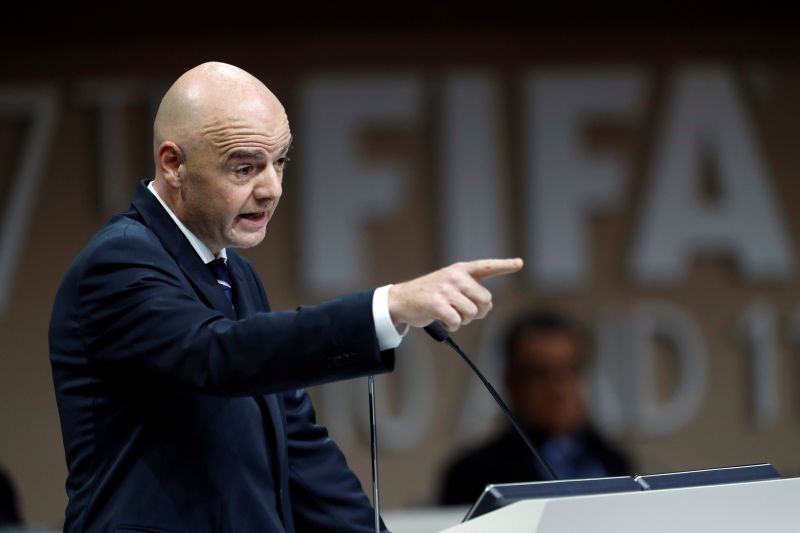By Andrew Warshaw
November 9 – The Portuguese official ousted by FIFA as its chief governance and electoral watchdog has blasted the organisation’s approach to political neutrality under Gianni Infantino as “shocking” and says there is no chance of reform from within because of its closed-shop mentality.
Miguel Maduro, whose damning testimony to a British parliamentary hearing in September blew the lid off FIFA’s commitment to clean itself up, has now made more explosive remarks that undermine Infantino’s regime and further call into question FIFA’s credibility.
As part of a purge of senior ethics watchdogs, Maduro, a Portuguese lawyer and former government minister, part of whose job was to vet candidates for senior FIFA positions, was removed last May after less than a year as head of FIFA’s governance committee along with the heads of FIFA’s ethics investigatory and adjudication bodies.
His removal was directly linked to his decision to block Russian World Cup supremo and FA boss Vitaly Mutko from keeping his seat on FIFA’s ruling council.
Mutko, a key Infantino ally, was barred because his role as Russia’s deputy prime minister was deemed to be in conflict with FIFA’s regulations on political neutrality.
In an interview with the Norwegian investigative website Josimar, Maduro pulled no punches as he denounced FIFA for being totally selective when applying its own rules over government interference and over who can or can’t hold positions of power.
“I find no other way to describe FIFA’s approach to the principle of political neutrality than shocking,” said Maduro.
“How else to describe a practice that one day suspends a football association because the government of that country requested it to do something, but on a different day does not find any problem in a government’s minister being the president of a football association? It is obviously much easier for a government to determine the practices of a football association by having a minister president of that association.”
“The code of ethics is clear that all football officials have to be neutral with respect to governmental organisations. A minister, by definition, cannot be neutral with respect to his or her government.”
“The ethics principles apply equally at national level and it is profoundly disappointing that FIFA has done nothing to enforce such principle in a coherent manner at the level of national associations. It is one more instance of a selective application of an ethical principle that reveals a culture foreign to the rule of the law.”
Despite Infantino banging the drum for openness and transparency, Maduro believes FIFA will never be able to achieve lasting reform until it ends its closed shop approach and opens itself up to greater scrutiny and accountability.
“FIFA is a closed shop that operates as a political cartel. In such context is not surprising that no FA or football actor speaks openly about what’s wrong,” he charged. “Our attempts to enforce the rules met very strong resistance and ultimately led to our replacement.”
“This limited and closed group of people is the real constituency of FIFA’s leadership. They determine the political survival of any FIFA leadership and they are not interested in genuine governance reforms since that would be bound to challenge such political cartel and subject it to much stricter accountability.”
Genuine reform will only happen, according to Maduro, “if imposed from the outside. What is needed is effective external regulatory supervision.”
This, said Maduro, should be under the auspices of the EU which should create an independent agency to oversee key governance aspects.
And if FIFA don’t want to go along with it?
“That’s easy,” said Maduro. “They will not be able to operate in the EU internal market. If FIFA and its confederations and FAs don’t accept the jurisdiction of the agency, they would not be able to organize sports competitions in the EU internal market, do broadcasting deals etc.”
“What is certainly not acceptable is to adopt all these rules and principles of good governance and then ask the independent bodies charged with their application not to enforce them because such rules are allegedly not accepted by certain cultures. Either FIFA and the FAs are serious about what they say and the rules they adopt or not.”
Contact the writer of this this story at moc.l1734790552labto1734790552ofdlr1734790552owedi1734790552sni@w1734790552ahsra1734790552w.wer1734790552dna1734790552

